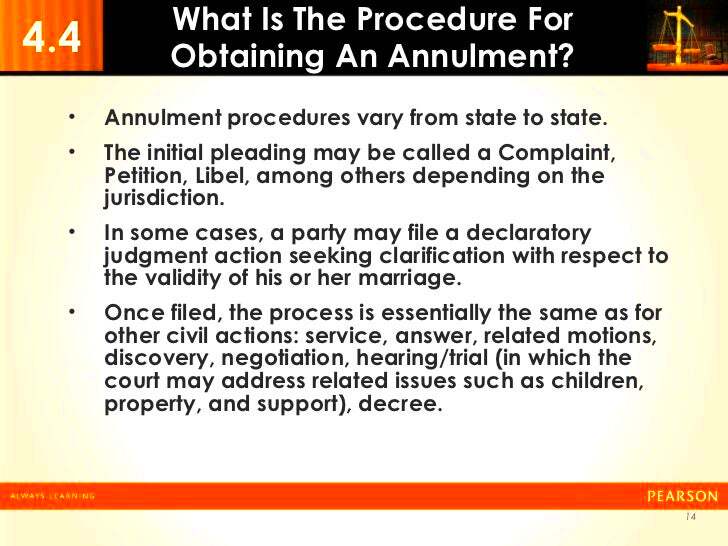Annulment Laws in Michigan: Legal Process Explained
Annulment is a legal process that declares a marriage null and void, meaning it was never valid in the eyes of the law. In Michigan, this can be a vital option for individuals who find themselves in a marriage that doesn’t meet legal requirements. While divorce ends a valid marriage, annulment essentially states that the marriage never happened. This can have significant emotional and legal implications for the individuals involved.
Grounds for Annulment in Michigan

In Michigan, there are specific grounds that can justify an annulment. These include:
- Fraud or Misrepresentation: If one party lied about significant aspects, like their identity or intentions.
- Incapacity: If one spouse was unable to understand the nature of marriage due to mental illness or intoxication at the time of the marriage.
- Underage Marriage: If one or both parties were below the legal age to marry without parental consent.
- Bigamy: If one spouse was already married to someone else when the marriage took place.
- Physical Incapacity: If one spouse is unable to consummate the marriage due to a physical condition.
It’s important to note that these grounds must be proven in court for an annulment to be granted. If you believe you have a valid reason for annulment, consulting with a qualified attorney can provide clarity.
Differences Between Annulment and Divorce
While both annulment and divorce end a marriage, they are fundamentally different in several ways:
| Aspect | Annulment | Divorce |
|---|---|---|
| Definition | Declares the marriage null and void | Legally ends a valid marriage |
| Legal Status | The marriage is considered never to have existed | The marriage was valid but has been legally dissolved |
| Grounds | Specific reasons such as fraud or incapacity | Reasons can vary, including irreconcilable differences |
| Effects on Property | Generally, no division of property occurs | Assets and debts are divided according to state laws |
| Social Implications | May affect social perceptions, as the marriage is voided | Commonly accepted social outcome for relationships |
Understanding these differences can help individuals make informed decisions about their situations. If you’re considering either option, it’s wise to seek legal advice to navigate the complexities of the law.
The Legal Process for Annulment in Michigan
The legal process for annulment in Michigan involves several steps that can seem overwhelming, but breaking them down makes it more manageable. First, it’s essential to gather all necessary documentation and evidence to support your case. This includes marriage certificates, any relevant communications, and documents proving your grounds for annulment.
Here’s a simple outline of the legal process:
- Consult with an Attorney: Before starting the process, it’s wise to seek legal advice to understand your rights and the grounds for annulment.
- File the Petition: You’ll need to file a petition for annulment in your local circuit court, detailing the grounds for your request.
- Serve Your Spouse: Once filed, your spouse must be formally notified about the annulment proceedings.
- Attend a Hearing: A court hearing will be scheduled where both parties can present evidence and testify if necessary.
- Receive the Court’s Decision: After the hearing, the judge will decide whether to grant the annulment based on the evidence presented.
Each case is unique, so having a lawyer can be beneficial to navigate any challenges that arise during the process. Understanding each step helps to ensure that everything proceeds smoothly.
Filing for Annulment in Michigan
Filing for annulment in Michigan is a formal process that requires careful attention to detail. The first step is to prepare the necessary paperwork, including a petition for annulment that outlines your reasons for the request.
Here’s what you typically need to do when filing:
- Gather Documents: Collect your marriage certificate and any evidence supporting your annulment grounds.
- Complete the Petition: Fill out the annulment petition accurately. This document will outline your marriage details and the reasons for seeking annulment.
- File with the Court: Submit your completed petition to the appropriate circuit court in Michigan. There may be filing fees involved, so be prepared for those costs.
- Notify Your Spouse: After filing, you must serve your spouse with the petition. This can usually be done through a process server or by mail.
- Prepare for the Hearing: Organize your evidence and any witnesses you plan to call. This will be crucial in demonstrating your case to the judge.
By following these steps, you can effectively initiate the annulment process in Michigan. Make sure to stay organized and keep track of all deadlines and requirements to ensure a smoother experience.
Effects of Annulment on Property and Debts
One of the significant aspects of annulment is how it affects property and debts. Since an annulment declares a marriage void, it generally does not involve the division of property and debts as a divorce does. However, understanding the implications is essential.
Here’s how annulment typically impacts property and debts:
| Aspect | Effect of Annulment |
|---|---|
| Property Division | Generally, there is no division of property as the marriage is considered never to have existed. |
| Joint Debts | Debts incurred during the marriage may not be shared, but responsibility can depend on specific circumstances. |
| Marital Assets | Assets acquired before or during the marriage are typically not subject to division. |
| Alimony | Alimony is usually not awarded in annulment cases since the marriage is considered void. |
It’s essential to discuss your specific situation with a legal professional to understand how annulment will affect your financial responsibilities. Having clarity on these issues can help you make informed decisions as you navigate this challenging process.
Emotional and Social Implications of Annulment
Deciding to pursue an annulment can have profound emotional and social effects on individuals involved. Unlike divorce, which is often viewed as a more common resolution to marital issues, annulment can carry a stigma due to the belief that the marriage was somehow invalid from the start. This perception can lead to feelings of shame or embarrassment.
Here are some emotional and social implications you might face:
- Emotional Turmoil: Many people experience a mix of emotions, including sadness, relief, and confusion. It’s essential to allow yourself to process these feelings.
- Stigmatization: Some may face judgment from family or friends who misunderstand the annulment process, viewing it as a failure rather than a legal remedy.
- Support Systems: Building a support network of friends, family, or counselors can be beneficial in navigating the emotional landscape during this time.
- Social Perception: The way others perceive annulment may impact future relationships, as some individuals might question the validity of your past marriage.
Understanding these implications can help you prepare mentally and emotionally for what lies ahead. Seeking professional help, such as therapy, can also provide additional support during this transition.
Frequently Asked Questions about Annulment in Michigan
As you navigate the annulment process in Michigan, you may have several questions. Here are some frequently asked questions to help clarify the process:
| Question | Answer |
|---|---|
| What are the grounds for annulment in Michigan? | Common grounds include fraud, incapacity, bigamy, and underage marriage. |
| How long does the annulment process take? | The duration varies but can take several months, depending on court schedules and complexity. |
| Will I need an attorney for annulment? | While not required, having an attorney can help navigate the legal complexities involved. |
| Does annulment affect child custody? | Child custody matters are handled separately and depend on the best interests of the child. |
| Can I remarry after annulment? | Yes, once the annulment is finalized, you are free to remarry. |
These FAQs address some of the most common concerns about annulment in Michigan. If you have more questions, consulting with a legal professional is always a good idea.
Conclusion on Annulment Laws in Michigan
Annulment laws in Michigan provide an important legal avenue for individuals seeking to void a marriage that lacks validity. Understanding the grounds, process, and implications of annulment is crucial for making informed decisions. While the emotional and social consequences can be challenging, having the right support and resources can ease the transition.
In conclusion, if you find yourself in a situation where annulment seems like the best option, consider seeking legal advice to guide you through the process. By understanding your rights and the legal framework, you can navigate this journey more confidently and ensure that your future is bright and promising.


